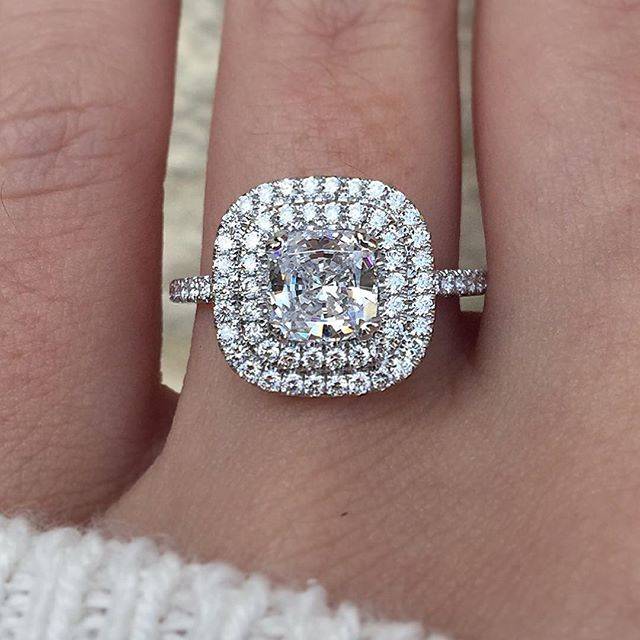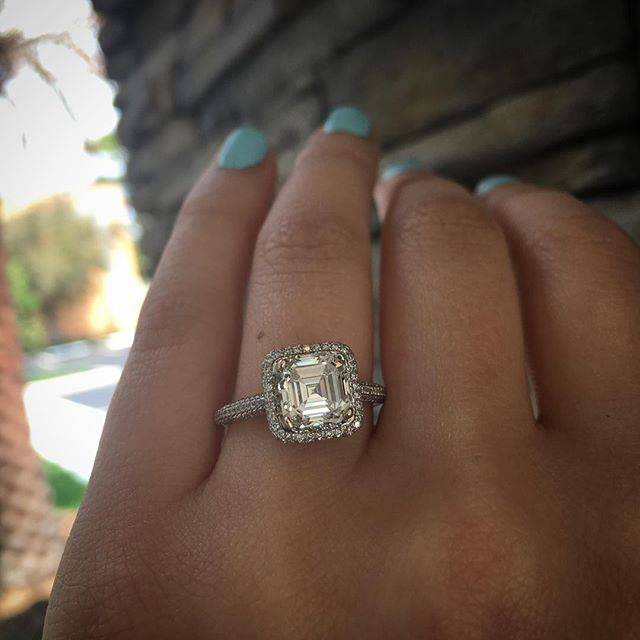
Why Man Made Diamonds are a Bad Idea
Let's get a few things out of the way: this is not a tirade against man made diamonds. They are an exciting addition to the millenia-old diamond trade, and they provide more options for clients. Which is always a good thing. They are fantastic options for those who prioritize sustainability and a diamond that's conflict-free. Man made diamonds have plenty of benefits, and there are other great reasons why you might be interested.
But this is not that post.
This post is why man made diamonds might be a bad idea for you. Might be. Ultimately, you're the one who makes the judgement call about the perfect diamond for your wants and needs.
Raymond Lee Jewelers and Diamonds by Raymond Lee do not sell man made diamonds. It's not because they're an inferior product. Actually, they are chemically identical to naturally mined diamond. Same crystal structure, same carbon. Man-made diamonds are grown in a lab under the same conditions in which a natural diamond grows. It's just that they manage to do it in a matter of weeks rather than a billion years or so.
Related: Lab Grown Diamonds vs Natural Diamonds vs Diamond Simulants
The end result is a stone that looks like a diamond, behaves like a diamond, and most importantly, shines bright like a diamond. So the issue isn't that they aren't as good as the real deal. It's that they're undetectable from the real deal.
And when it comes to selling diamonds to happy customers that turn into clientele, and eventually family, there's one thing that reigns supreme: trust. And that trust is built on disclosing absolutely everything we know about a diamond to a customer.
As we've said before:
Because the regulations and grading regarding synthetic diamonds are pretty non-existent, it’s entirely up to jewelers to disclose when they’re selling a man made diamond. And because there’s no easy way to differentiate between the two, it would be difficult for us to say that we’re 100% certain we’re selling a synthetic diamond with such and such characteristics.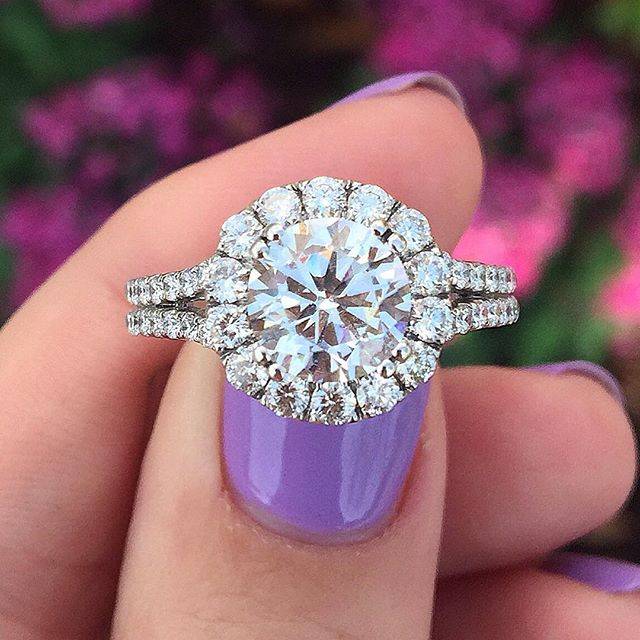
Related: What's the Deal with Lab Grown Diamonds?
Adding to the confusion are unscrupulous online stores that play on the marketplace confusion between lab-grown diamonds and lab-grown diamond simulants. Replace "lab-grown" with its synonyms "synthetic" and "man made " and you've tripled the recipe for confusion. Sellers, mostly online, market their simulants right along with true lab-grown diamonds, and bury the fact that they're not actually diamonds in the fine print. We just don't want to be associated with that in any way shape or form. If you're buying a CZ or moissanite from us, you're going to know it.
[caption id="attachment_36939" align="aligncenter"]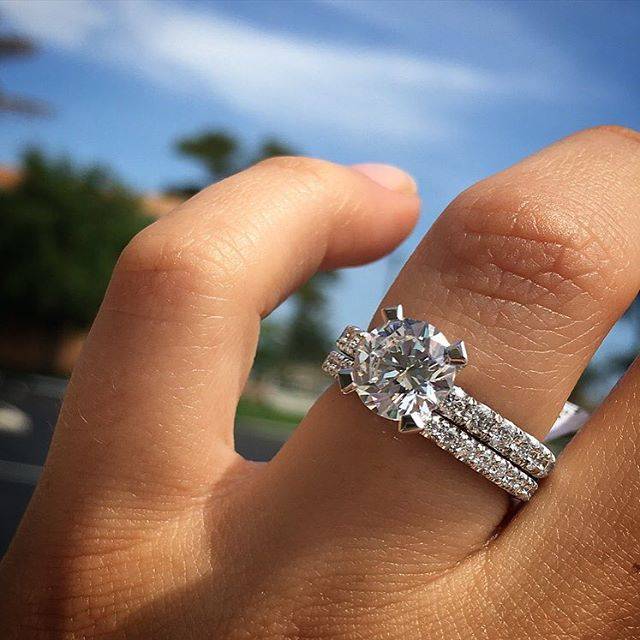 Most of our Instagram & Facebook pictures show our settings with a CZ![/caption]
Most of our Instagram & Facebook pictures show our settings with a CZ![/caption]
Related: Lab Grown Diamonds vs. Lab Grown Diamond Simulants
The other reason we think man made diamonds are a bad idea: we love BIG diamonds! Honestly, for years our domain name was WeBuyBigDiamonds.com. That should tell you a bit about our jewelry philosophy! Because we adore anything in the heavyweight carat category, most colorless man-made diamonds just don't do it for us.
Because of the technological feat of replicating a process that takes eons and reducing that to a few weeks, the size of the diamonds is usually smaller. When it comes to synthetic white diamonds, most are under one carat. Some labs have recently gotten more proficient at creating those up to two carats.
[caption id="attachment_36940" align="aligncenter"]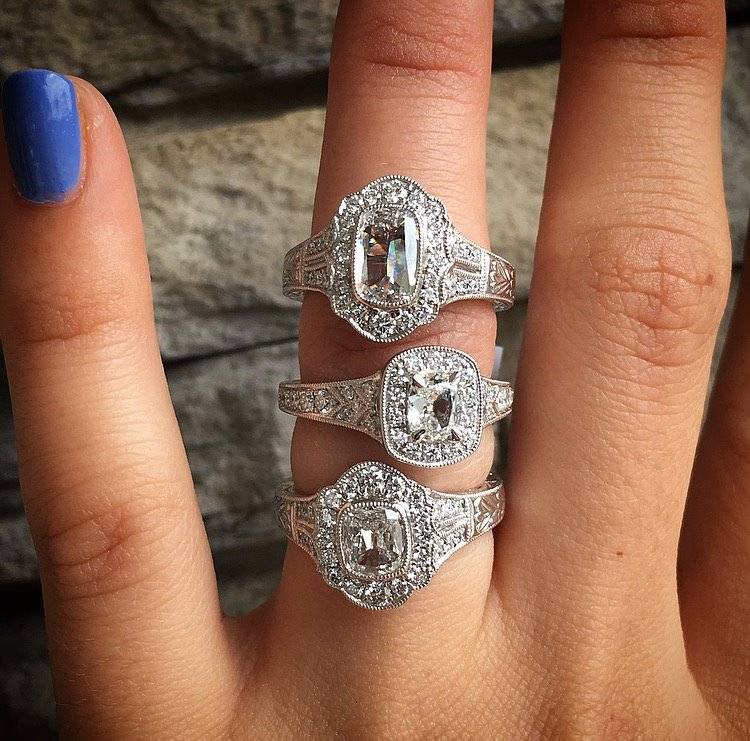 But not Henri Daussi - these are diamonds <3[/caption]
But not Henri Daussi - these are diamonds <3[/caption]
Related: 5 Carat Synthetic Diamond Created
For fancy colored synthetics, it's easier to grow them larger because of their different mineral content. And as opposed to white lab grown diamonds, which are usually only 20% - 30% less than their natural counterparts, lab grown fancy colored diamonds are a lot less than those naturally mined.
Again, this pales in comparison to our number one reason for avoiding man made diamonds (our clientele's trust) but it is a factor. We have no shortage of beautiful, natural diamonds under 2 carats and even under 1 carats. So if we're collecting for the novelty of things, we want to do it with big, eye-popping gemstones!
For us, man made diamonds are a bad idea. They might not be for you, but like we always say, education is the first step in diamond shopping. After learning more, would you buy a lab grown diamond? Let us know in the comments!

